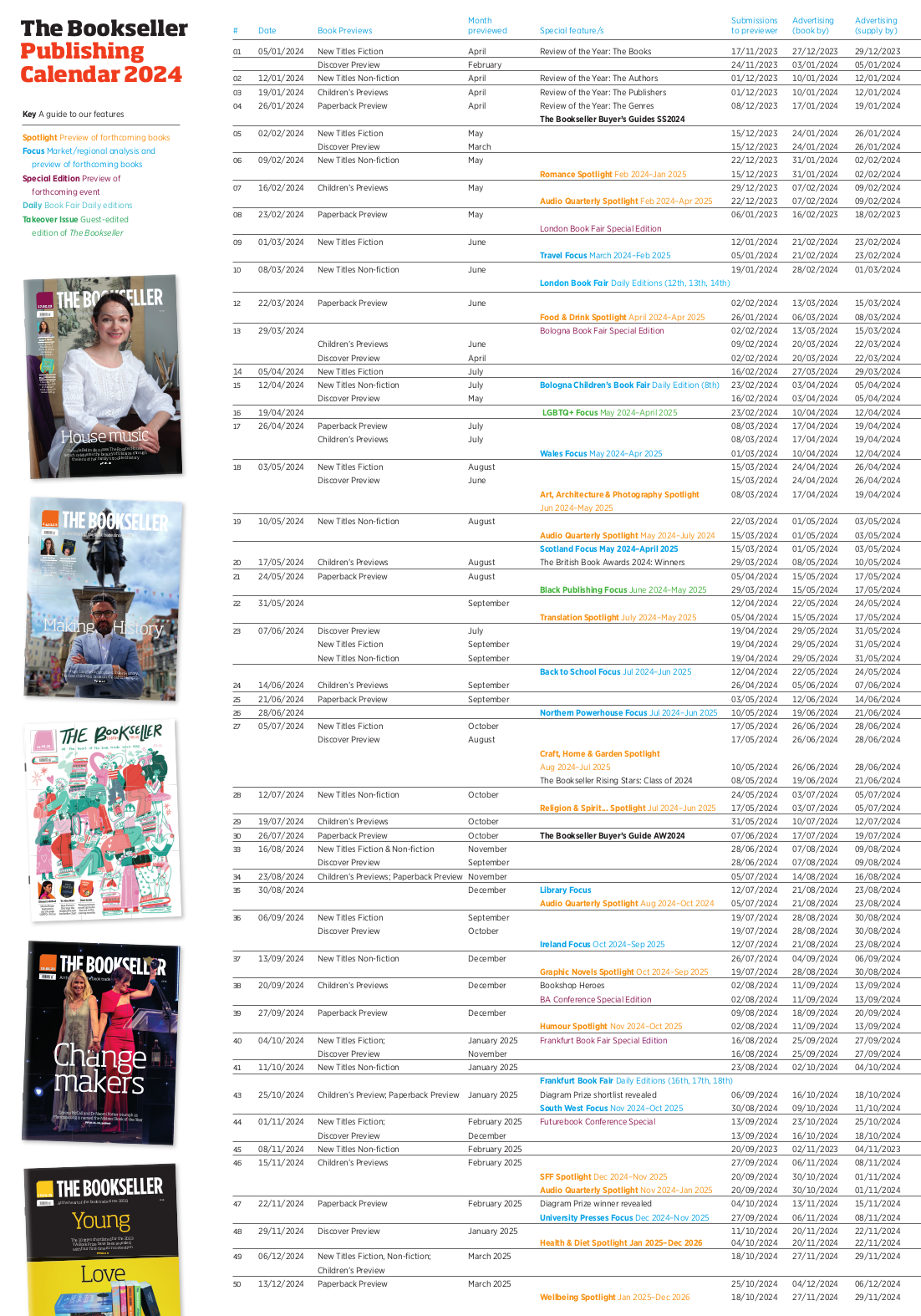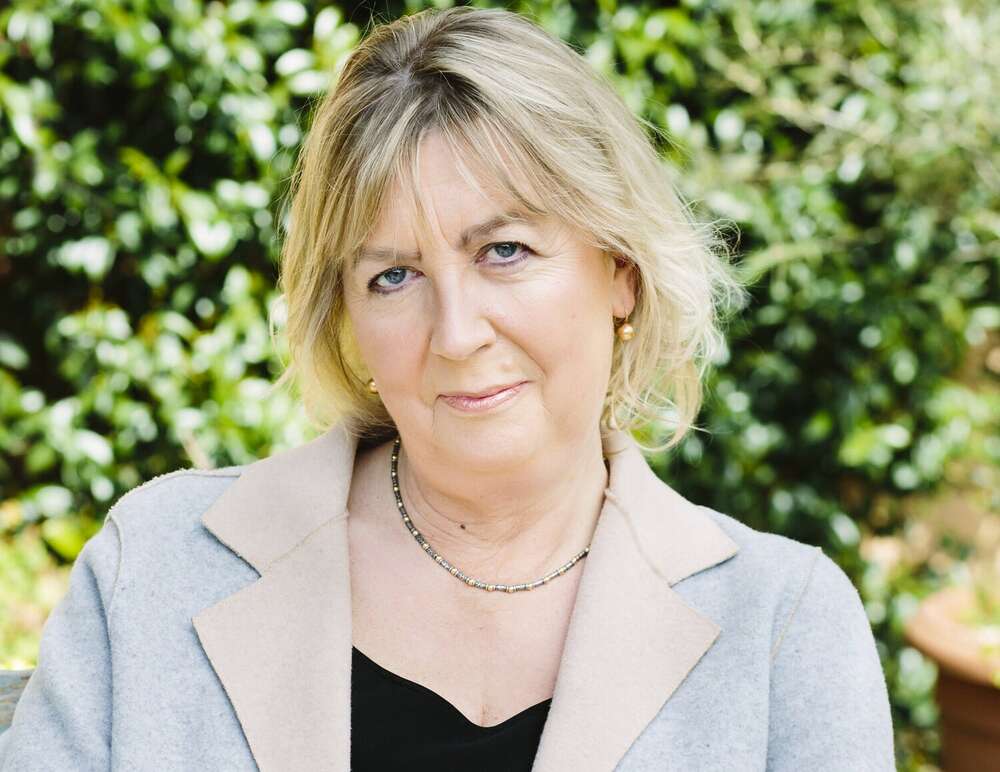You are viewing your 1 free article this month. Login to read more articles.
Kate Eberlen | 'You’ll be in somebody's life for just a moment'
Sometimes the premise of a book is just irresistible and this summer sees a fine example. Mantle’s big commercial fiction title, entices the reader with the following: Tess and Gus are meant to be. They just haven’t met properly yet. And perhaps they never will...
Miss You (August) follows Tess and Gus through their separate lives, from teenagers to thirtysomethings, dealing with family bereavement, love affairs, career dreams achieved and dashed as they almost, but not quite, meet and find their destiny. The novel opens in Florence in August 1997, where Tess is on a camping holiday with her friend Doll, a post-A-Level blowout before she starts university in the autumn. But when she arrives back home with a suntan and a head full of possibilities, it is to some shocking news: her mother has been diagnosed with inoperable cancer.
Also in Florence at the same time is Gus. Staying in a swanky hotel with his stiff, remote parents who have booked an expensive “Treasures of Tuscany” package, Gus prefers to mooch around the city on his own. The reason behind the emotional gulf between parents and son is that Gus’ older brother, Ross, was recently killed in a skiing accident. Tess and Gus do cross paths in Florence, when Tess hands Gus her camera and asks him to take a photo.
When I meet author Kate Eberlen, she explains over lunch that she has always been fascinated by “that idea of how many lives cross ours every day. I often think about it, particularly on holiday. When you are [on holiday] somewhere like Florence you’ll be doing the same route—almost—as other people. So you’ll have these lives that are just next to yours for a little bit and sometimes you’ll even pass them again, and at the end of the day you’re almost on smiling terms. Then you might—or you used to, before selfie sticks—say, ‘Do you mind taking a photo of me?’ So you’ll be in somebody’s life for just a moment.”
This observation about how our lives “glance against” others became the germ of a novel one day when Eberlen was on a train travelling from her home on the south coast to London. “I was looking out of the window at all those rows and rows of terraced houses as you come into London and thinking, ‘I wonder if any of those lives have ever crossed mine’.” Then the idea struck: “I just thought, ‘What if there were two people who were right for each other, but they just kept missing each other?’” The perfect title, “Miss You”, popped into her head at the same time.
Eberlen didn’t pursue the idea at first, but it wouldn’t go away. A full-time teaching job kept her busy but in idle moments she would think about how the novel might actually work. It would need two first-person narratives, which would be tricky, as she acknowledges, “because drama normally happens when people do meet, not when they don’t!”
Miss You is cleverly structured, as we follow Tess and Gus in alternate chapters through their separate lives as they criss-cross over the years. Eberlen didn’t start the novel with a plan, though. “I would write for as long as I could about one of them. Then I would have a break and then I would see what was happening to the other one. It happened quite organically really, how their lives touched. I absolutely didn’t plan those touches and in fact, for some of them it only occurred to me afterwards.”
The momentum of the story is kept going by never writing about the same incident through both characters’ eyes. “I always wanted the story to be progressing... I wanted time to be passing the whole way through.” Miss You is undoubtedly a superior romantic comedy (one scene even contains, in Eberlen’s words, a “tiny homage” to David Nicholls’ One Day, surely a jewel of the genre), but it is also a book about grief. When she started to think about her characters, it occurred to Eberlen that “there was another sort of ‘missing’ in their life”. Tess and Gus both experience grief; Tess primarily for her beloved mother, but also for her life plans as she realises she will have to sacrifice her university place to become the main carer for her younger sister. Gus’ grief is mixed with guilt: not only was he there on the mountain when his brother died, but he also had a very difficult relationship with him.
Mantle won a seven-way auction to acquire Miss You and one other book by Eberlen. Foreign rights have sold in an impressive 23 territories to date, including the US. It is the author’s first novel to be published as Kate Eberlen (her grandmother’s name), but trade readers might remember a series of novels published by Transworld in the late 1990s and 2000s by Imogen Parker (Eberlen’s real name). “I had completely given up writing after I finished the last one [This Little World, the final part of the Palace Hotel trilogy] in 2008. I just made the decision I wasn’t going to write fiction any more. Lots of things came together but I basically lost my confidence,” she says.
She had also settled into a new career, teaching English as a foreign language, with a view to spending time in Italy with her husband, also a teacher—“people think it’s a dead-end job, but actually it can be really creative”—and she was thoroughly enjoying the work when she had the idea for Miss You.
I know the idea of people being ‘meant to be’ is a very strong one in romantic fiction but what I would like [readers] to think is that Tess and Gus are only meant to be at the end of the book, rather than that they were always ‘meant to be’.
Of the decision to publish under a new name, she says: “It was totally me. I felt it was a new start. I’d given up [writing] and that side of my life was finished. So it seemed odd to me to be doing it. And when it looked like it was going to become a book, I thought, ‘This is a different thing for me. This is a new thing.’
“I know the idea of people being ‘meant to be’ is a very strong one in romantic fiction but what I would like [readers] to think is that Tess and Gus are only meant to be at the end of the book, rather than that they were always ‘meant to be’. Because I think if they had actually got together in Florence, they would have lasted about two weeks.” Which, let’s face it, wouldn’t really have made for quite such a charming, addictive love story.
Photo: Leanne Dixon Photography.










